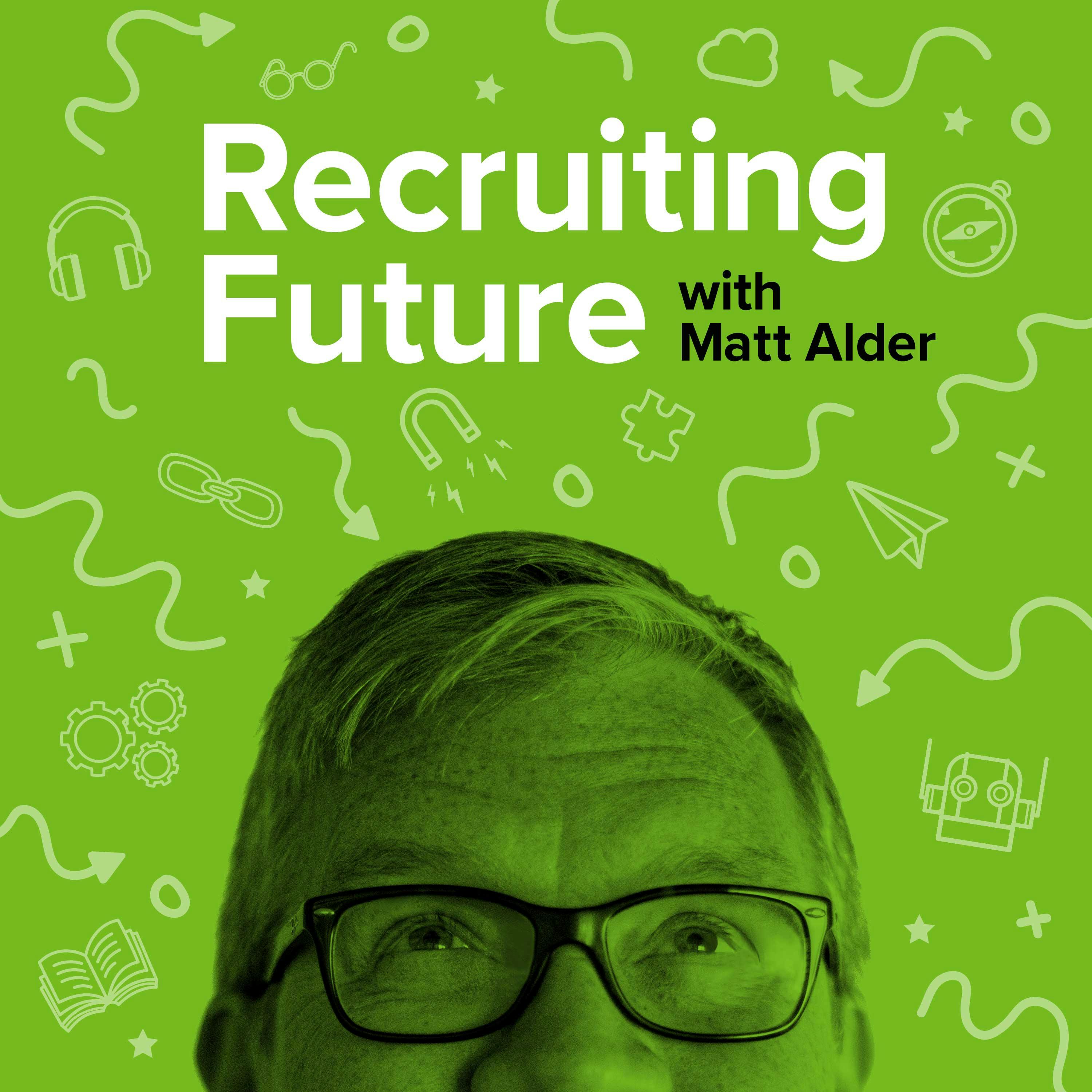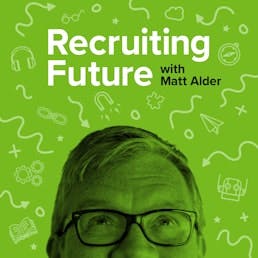
Recruiting Future with Matt Alder - What's Next For Talent Acquisition, HR & Hiring?
Author: Matt Alder
Subscribed: 1,361Played: 36,641Description
Talent acquisition is undergoing unprecedented disruption as AI, economic uncertainty, and the ever-shortening lifespan of skills radically reshape recruiting. On Recruiting Future, Matt Alder explores this evolving landscape, using insightful interviews with transformational TA practitioners and forward-thinking experts to spark your imagination and provide the insights you need to shape the future of talent acquisition in your organization.
Each episode explores topics such as AI, recruiting automation, recruitment marketing, employer branding, skills-based hiring, assessment, candidate experience, DEI, internal mobility, and the transformation of TA teams. Recruiting Future is an essential resource for everyone involved in hiring.
Matt Alder is a globally respected talent acquisition futurist, author, and speaker with over 25 years of experience exploring what’s next in recruiting. Renowned for his expertise in strategic foresight and technology trends, Matt provides a unique perspective that empowers leaders to navigate disruption. His deep industry knowledge and ability to spark meaningful conversations make Recruiting Future a must-listen for talent acquisition and HR professionals everywhere.














This is a great overview of how rapidly the recruiting landscape is changing. For those in the gaming or simulation space looking to streamline talent-like selections, tools like https://arknightsrecruitmentcalculator.vercel.app/ can be surprisingly insightful for understanding efficient tag combinations and probabilities. It's fascinating how strategic systems, even in games, can reflect real-world recruitment logic.
Is Mercury on your radar?!
this podcast exists just to sell shit.